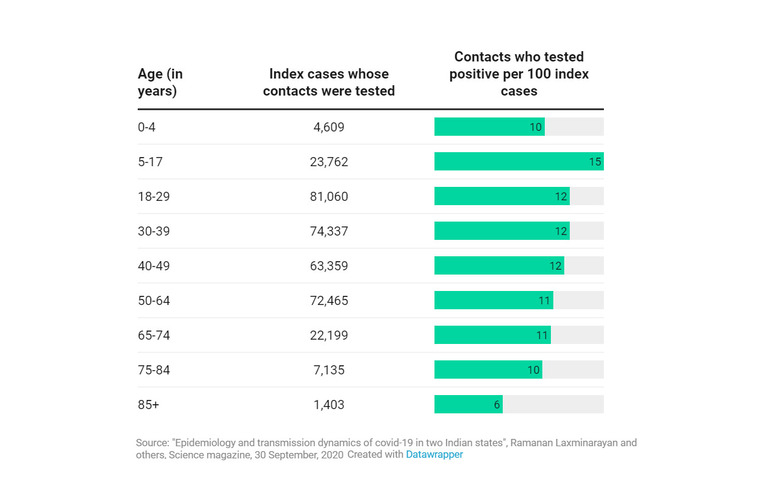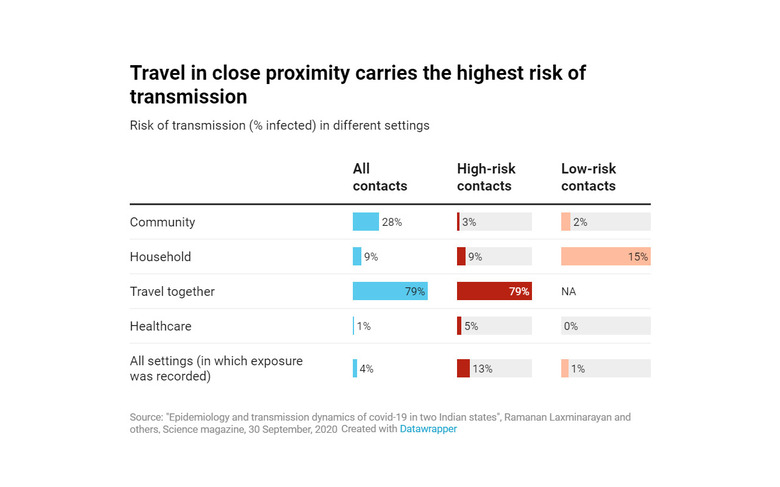Largest COVID-19 CT study says children, travel the keys to spread
The largest contact-tracing study ever conducted in the history of the world was done this year for COVID-19. In said study, whose results were posted today, "children and young adults were found to be potentially much more important to transmitting the virus" than previous studies have identified. Research was published this morning in the journal Science and results are available for viewing now.
The study tracked the infection pathways and mortality rate of 575,071 people who were exposed to 84,965 confirmed cases of COVID-19 (SARS-CoV-2). Among these cases, infection probabilities ranged from 4.7-10.7% for low-risk and high-risk contact types. Results showed that children and young adults made up 1/3 of COVID-19 positive cases.

The very highest infection risk was found in same-age contacts, and case-fatality ratios spanned from 0.05 in the age 5-17 group, to 16.6% in ages over 85 years. While the 5-17 group had the lowest fatality rate, they showed the highest rate of contacts who tested positive per 100 index cases.
"Kids are very efficient transmitters in this setting, which is something that hasn't been firmly established in previous studies," said lead researcher on this study, Ramanan Laxminarayan, senior research scholar at the Princeton Environmental Institute. "We found that reported cases and deaths have been more concentrated in younger cohorts than we expected based on observations in higher-income countries."
This study showed that 8% of infected individuals were responsible for 60% of all new infections. The study also showed, as noted by Princeton, "the first large-scale evidence that the implementation of a country-wide shutdown in India led to substantial reductions in coronavirus transmission."
Earlier studies done in the United States showed COVID-19-related deaths occurred (on average) 13 days after hospitalization. This study using data from India (again, the largest such study ever done) showed an average COVID-19-related death just 6 days after hospitalization.
Earlier studies in the USA pointed to a 60-plus at-risk population for COVID-19-related deaths. This study showed COVID-19-related deaths concentrated among people aged 50-64. Close-proximity travel also appeared to be a key factor in contracting COVID-19.

This study was conducted by researchers from the Princeton Environmental Institute (PEI), Johns Hopkins University and the University of California-Berkeley in association with public health officials from Tamil Nadu and Andhra Pradesh in India. The work done for this study was supported by the National Science Foundation and the Centers for Disease Control and Prevention. Imagery above uses data from the research quoted below, entered by Mint visualized by Datawrapper.
You can find more information about this study in the paper Epidemiology and transmission dynamics of COVID-19 in two Indian states as published on September 30, 2020, in the journal Science. This research can be found with code DOI:10.1126/science.abd7672 and was authored by Ramanan Laxminarayan; Brian Wahl; Shankar Reddy Dudala; K Gopal; Chandra Mohan; S Neelima; K. S. Jawahar Reddy; J Radhakrishnan; and Joseph Lewnard.
